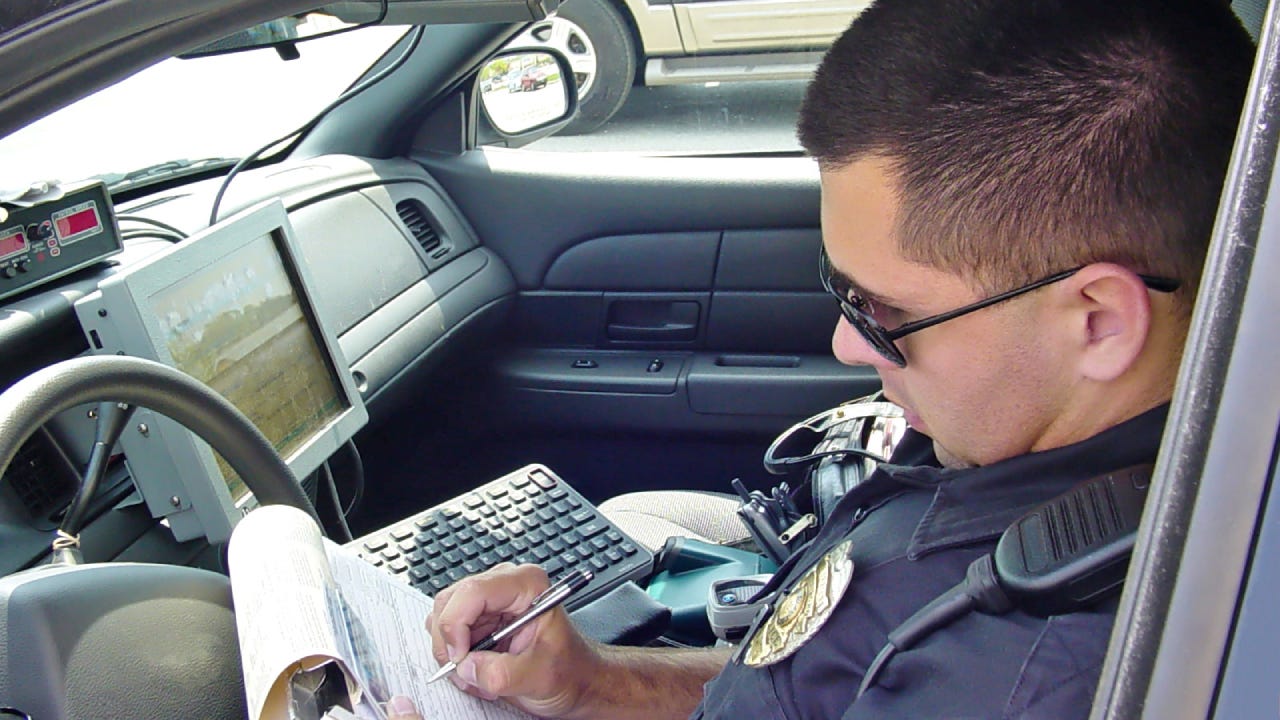How to keep a ticket off your driving record

The Bankrate promise
At Bankrate, we strive to help you make smarter financial decisions. To help readers understand how insurance affects their finances, we have licensed insurance professionals on staff who have spent a combined 47 years in the auto, home and life insurance industries. While we adhere to strict , this post may contain references to products from our partners. Here's an explanation of . Our content is backed by Coverage.com, LLC, a licensed entity (NPN: 19966249). For more information, please see our .
While not all traffic citations will cause your insurance premium to increase, more serious infractions, like a speeding ticket, most likely will. If you have a ticket on your record or recently received one, you might wonder how to keep your record blemish-free. While you most likely won’t be able to get a ticket removed from your record entirely, you may be able to prevent points from being added to your license or keep insurance premium surcharges to a minimum with the following strategies.
1. Opt for traffic school
If you recently received a ticket, such as for failure to completely stop at a stop sign or for speeding, you may have the option to sign up for an approved traffic school course instead of getting points on your driving record. A course on defensive driving for speeding tickets may be the easiest method to try. Most traffic school courses can be completed online over a few hours. You may even be able to attend an in-person traffic school course over a couple of evenings or a weekend.
A traffic school course can be a good refresher on driver safety rules and state regulations. Once you successfully complete the defensive driving course, the points and citation may be dismissed and/or removed from your record, which will typically keep your insurance premiums from going up. However, most states have limitations on how many tickets you can go to traffic school for. In most cases, you may only be allowed to remove one new moving violation by attending traffic school every 12 or 18 months.
Whether you are able to attend traffic school in order to have a ticket removed from your record will depend on what state you live in. Many states offer some form of ticket dismissal via driving courses, but you should check with your state to determine if you are eligible. Alternatively, some car insurance companies offer discounts for policyholders who complete driver safety courses, so even if you can’t get the ticket removed, you may be able to minimize your surcharge.
2. Contest the citation
If you are unable to attend traffic school in exchange for removal of the ticket from your driving record, you could try to contest it. When you contest a ticket, you are essentially pleading not guilty instead of accepting the citation. This strategy is a long-shot — in most cases, the officer who cited you will be present to answer your contestation and provide evidence of why you were cited. However, it may be worth a try if your citation is serious or you have solid evidence showing why you were incorrectly cited.
It takes extra work to contest a ticket — you will need to go to court and argue your case. Having evidence showing why you believe the officer who ticketed you was wrong would improve your chances of success. Depending on the severity of the ticket, you may want to bring an attorney, although it is not required.
Look for technicalities that could help you win your case. If your name or other information on the ticket was entered incorrectly or missing, the judge may side with you. If you are lucky enough to appear in court and the officer does not show, your case may also be dismissed. Although small technicalities can help you win your case, be prepared to provide evidence showing why the ticket should be dismissed. You may want to consult with a legal professional before you plan to pursue this strategy.
3. Delay the ticket
If you do not feel you have strong evidence to fight the ticket, you could try and delay the court hearing. Requesting a continuance to further delay the hearing as far as possible could buy you valuable time. Circumstances can change before the future court date. The officer who wrote the citation may have transferred or retired before your hearing, which would mean an automatic dismissal if they do not show. Again, you may want to consult with a legal professional before attempting this strategy.
4. Reach out to the Clerk of the Court in your area
Some U.S. jurisdictions give the Clerk of Court the power to change a citation such as a speeding ticket into a non-moving violation that will not affect your car insurance premiums. The best way to find out is by contacting the Clerk of Court in your area — they are typically located in the county courthouse. You may also be able to find the courthouse information on the ticket itself or by looking online.
Although the Clerk of Court may be able to lower the ticket’s severity to a non-moving violation, you will likely still need to pay the fine in full and any associated court costs.
5. Ask for a deferral
A deferral pushes back the ticket to a later date, buying you time before it shows up on your driving record. Preventing or delaying your insurance company from seeing your moving violation may help keep your insurance from going up. When you choose to pursue a deferral, the moving violation will not show on your record while the court deliberates your case. In most cases, deferrals last for one year.
Getting a deferral takes some effort and requires patience. You may need to appear before the court to ask for it. A judge or the district attorney typically has to approve your request. Court fees could cost you between $100 to $300, although the cost of a deferral may be cheaper than the increase in your insurance premiums after a moving violation hits your driving record.
You may be thinking that this method does not help much because the ticket will eventually show on your driving record. However, if you avoid any other tickets during the time frame your ticket is pushed back, it may be dismissed entirely. If you do not typically get speeding tickets or other types of traffic violations, this approach could be successful if you manage to avoid any further tickets in the year time frame of the deferral.
Frequently asked questions
-
-
How long a speeding ticket or moving violation stays on your driving record depends on the state in which you live. It could be on your record from anywhere for three to 10 years. More serious offenses, like a DUI, might even stay on your driving record indefinitely.
-
Again, this depends on the state in which you live. Many states keep track of your driving record by assigning points to a violation and adding points to your license. The number of points you receive depends on how severe the infraction is and what the rules are in your state. Receiving too many points can cause your car insurance rates to increase and may even, in some cases, cost you your license.
-
Not always. If you plan to contest the ticket or try to pursue a different option (such as traffic school), it might make sense to delay paying your fines. However, you should make note of any payment deadlines to avoid late fees or other penalties associated with nonpayment.
-
More than likely, a speeding ticket will lead to an increase in your car insurance premiums. Premium data from Quadrant Information Services shows that drivers with a speeding ticket conviction on their record pay an average of $2,427 per year for a full coverage policy and $748 per year for minimum coverage. By comparison, the average premium for a driver with a clean driving record is $2,014 per year for full coverage and $622 per year for minimum coverage.
-
Related Articles



